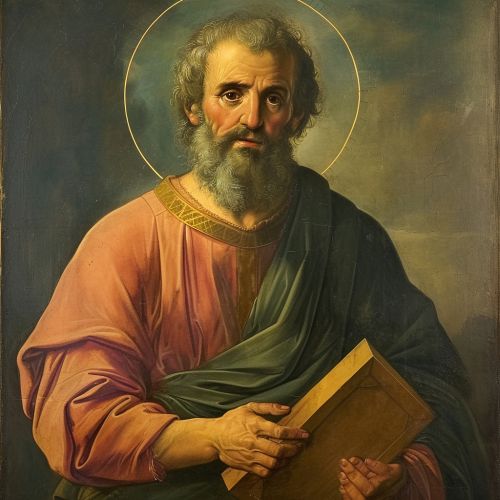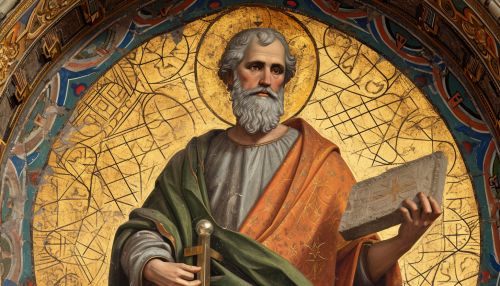Thomas the Apostle
Early Life and Calling
Thomas the Apostle, also known as Didymus which means "the twin," was one of the twelve apostles of Jesus. The New Testament provides limited information about Thomas. He was likely a fisherman by trade, as were several of the other apostles. He is mentioned by name in the Gospel of John, the Gospel of Matthew, the Gospel of Mark, and the Gospel of Luke, as well as in the Acts of the Apostles and the Epistle to the Romans.
Role in the New Testament
In the New Testament, Thomas is portrayed as both questioning and courageous, often willing to take risks and express doubts that the other apostles might have been thinking but were hesitant to voice. His most famous moment in the New Testament comes in John 20:24-29, when he refuses to believe in the resurrection of Jesus until he can see and touch Jesus' wounds. This episode has led to the term "Doubting Thomas" being used to refer to someone who refuses to believe something without direct, physical, personal evidence.
Missionary Work
According to tradition, after the death and resurrection of Jesus, Thomas set out to evangelize the Parthian Empire, which included modern-day Iran, and possibly even reached as far as India. The Acts of Thomas, a 3rd-century work, is one of the key sources for his missionary activities. This text suggests that Thomas was active in the kingdom of Gondophares in India, where he is believed to have converted many to Christianity.
Death and Legacy
Thomas is believed to have been martyred in India, near the modern city of Chennai, at St. Thomas Mount. He was reportedly killed by a spear, and his relics were later transferred to Edessa in modern-day Turkey. He is venerated as a saint in the Roman Catholic, Eastern Orthodox, Oriental Orthodox, and Anglican churches, and his feast day is celebrated on July 3 in Western Christianity and October 6 in Eastern Christianity.
Influence and Veneration
Thomas's influence on Christianity extends far beyond his role as one of the twelve apostles. His willingness to question and doubt has made him a compelling figure for many modern Christians. He is the patron saint of architects, builders, construction workers, and people in doubt. In India, the Saint Thomas Christians, also known as the Syrian Christians or Nasrani, trace their origins to Thomas's missionary work.
See Also


